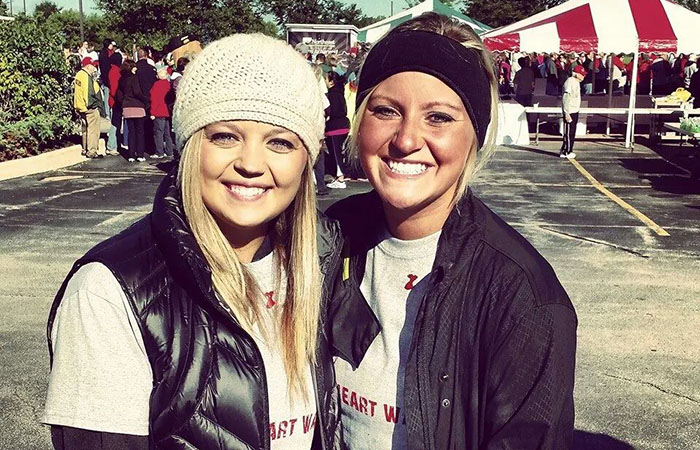Kinnard Sisters' Story
Like many sisters, Cassi and Steffi Kinnard share a close bond. However, their relationship is bonded beyond the experiences of sisterhood. Both young women suffer from heart valve disease – a medical condition that affects up to 5-million people in the United States.
Heart valve disease is when one or more of the four heart valves either do not open wide enough or close sufficiently. It is usually after a physical examination when an abnormal heart sound (murmur) is first detected leading to the diagnosis. The progression of the disease is often slow and individuals may not have any symptoms initially. Intervention is needed when the body is no longer able to adapt and the heart begins to fail.
The treatment of heart valve disease is surgery and if left untreated, heart valve disease is capable of causing sudden and unexpected death.
Cassi, now 19, was diagnosed with heart valve disease shortly after she was born. Doctors found a problem with the valve that opens to allow the heart to pump blood to the body. The severity of Cassi’s heart valve disease was low, so she was monitored closely to ensure she stayed healthy.
“I just always knew something was wrong with me or that I was different,” said Cassi.
Doctors said it would never be a matter of if – but when – Cassi needed to have heart valve replacement surgery.
“I remember feeling so bad for her and asking myself why she had been born with this condition,” said Steffi, who is now 23.
Little did Steffi know that she too had heart valve disease which was first diagnosed at the age of 17. A doctor detected Steffi’s abnormal heart sound during a routine sports physical. Like Cassi, Steffi’s heart valve disease was not severe and she was watched closely.
Still, the time came when both young women needed surgery. Although Cassi had been living with a heart valve disease diagnosis much longer, it was Steffi who required surgery first.
“I will never forget hugging and crying with my family before going into surgery and having that feeling inside that there’s always a chance I wouldn’t wake back up,” said Steffi.
In March 2013, Steffi had surgery to replace her abnormal valve, as well as the main artery coming out of her heart. Cassi had her surgery just one year later.
Specialty care close to home
Cassi and Steffi Kinnard, and many other heart valve disease patients in Northeast Wisconsin, have access to specialized care close to home thanks to the Prevea Health Heart Valve Clinic at HSHS St. Vincent Hospital.
The Prevea Health Heart Valve Clinic provides education, monitoring and treatment options to patients who have heart valve disease, heart murmurs or a family history of valve disease. It is Green Bay’s first, largest and longest-running heart valve clinic.
Prevea Health is also proud to offer full-time pediatric cardiology services with specialists on-call after hours and on weekends. Pediatric cardiologists from Prevea Health and the Medical College of Wisconsin make up this talented team that specialize in heart care for children ranging from infants to adolescents in Green Bay at the Prevea Allouez Health Center.
Patients who require surgery, like Cassi and Steffi did, can receive exceptional care by the Prevea Health cardiothoracic surgeons at HSHS St. Vincent Hospital Heart & Vascular Center. After heart surgery, patients are cared for in the Northeast Wisconsin region’s only dedicated Cardiovascular Intensive Care Unit (CVICU) at HSHS St. Vincent Hospital, which is staffed by health care experts who are specialized in the specific needs of cardiothoracic healing.
Appreciating life, inspiring others
Today, Cassi and Steffi are healthy, happy, young women with a deep appreciation for life and the journey they have experienced together.
Both have tattoos on their wrists, which are replicas of what their heart beats once looked like on monitors, and both wear matching, heart-shaped necklaces. You will also find them participating in annual American Heart Association Heart Walks.
“We really want to inspire others who are experiencing heart valve disease,” said Steffi. “We just want to give them hope that everything is going to be okay.”
